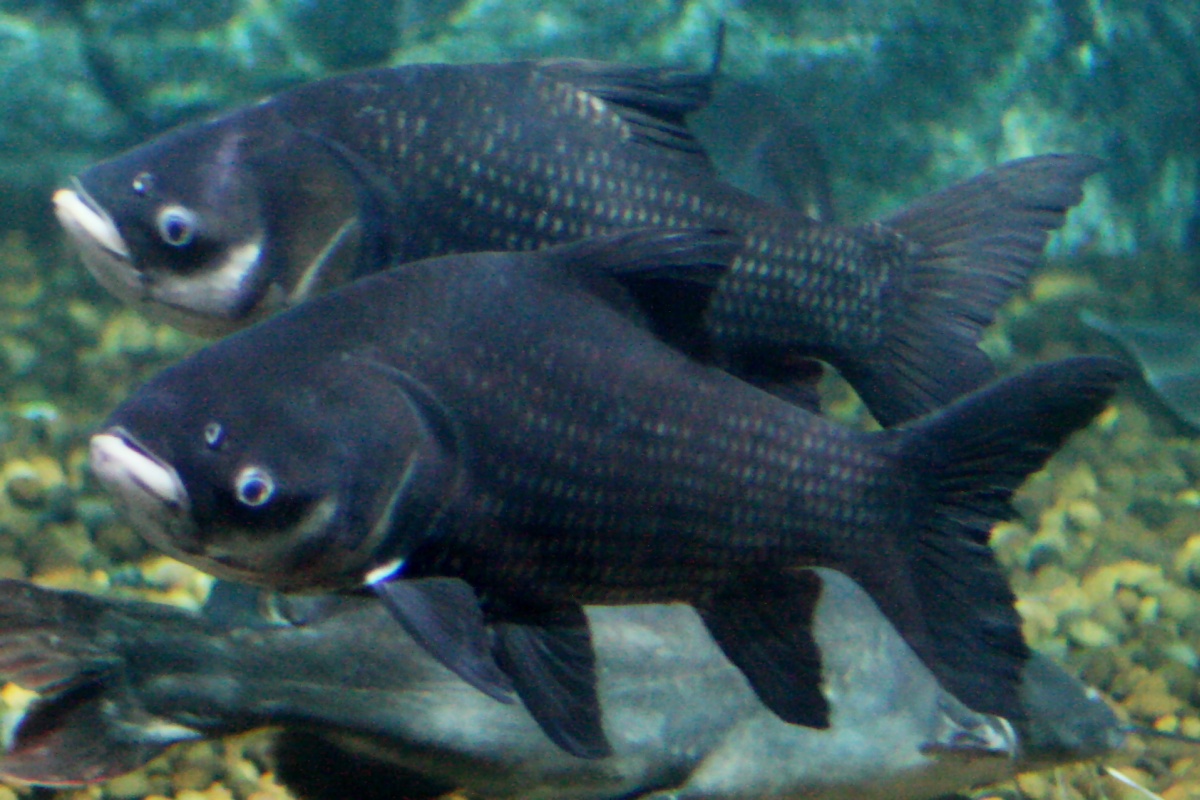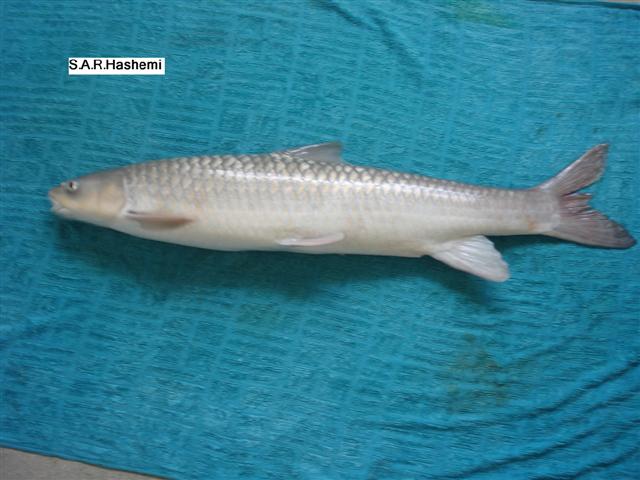|
Pterocapoeta
''Pterocapoeta maroccana'' is a species of cyprinid fish. It is found only in Morocco Morocco (),, ) officially the Kingdom of Morocco, is the westernmost country in the Maghreb region of North Africa. It overlooks the Mediterranean Sea to the north and the Atlantic Ocean to the west, and has land borders with Algeria to .... Labeobarbus marocanna (Pterocapoeta maroccana) is a species of medium to large Labeobarbus species endemic to Morocco, it can be found from the Eastern part of the country from Oued Moulouya to as western as possibly Agadir, its the only known species of Labeobarbus found north of the Sahara, all other species are only found in the afro tropical regions. References Cyprininae Cyprinid fish of Africa Endemic fauna of Morocco Taxa named by Albert Günther Taxonomy articles created by Polbot {{Cyprininae-stub ... [...More Info...] [...Related Items...] OR: [Wikipedia] [Google] [Baidu] |
Cyprinid
Cyprinidae is a family of freshwater fish commonly called the carp or minnow family. It includes the carps, the true minnows, and relatives like the barbs and barbels. Cyprinidae is the largest and most diverse fish family and the largest vertebrate animal family in general with about 3,000 species, of which only 1,270 remain extant, divided into about 370 genera. Cyprinids range from about 12 mm in size to the giant barb (''Catlocarpio siamensis''). By genus and species count, the family makes up more than two-thirds of the ostariophysian order Cypriniformes. The family name is derived from the Greek word ( 'carp'). Biology and ecology Cyprinids are stomachless fish with toothless jaws. Even so, food can be effectively chewed by the gill rakers of the specialized last gill bow. These pharyngeal teeth allow the fish to make chewing motions against a chewing plate formed by a bony process of the skull. The pharyngeal teeth are unique to each species and are used by ... [...More Info...] [...Related Items...] OR: [Wikipedia] [Google] [Baidu] |
Albert C
Albert may refer to: Companies * Albert (supermarket), a supermarket chain in the Czech Republic * Albert Heijn, a supermarket chain in the Netherlands * Albert Market, a street market in The Gambia * Albert Productions, a record label * Albert Computers, Inc., a computer manufacturer in the 1980s Entertainment * ''Albert'' (1985 film), a Czechoslovak film directed by František Vláčil * ''Albert'' (2015 film), a film by Karsten Kiilerich * ''Albert'' (2016 film), an American TV movie * ''Albert'' (Ed Hall album), 1988 * "Albert" (short story), by Leo Tolstoy * Albert (comics), a character in Marvel Comics * Albert (''Discworld''), a character in Terry Pratchett's ''Discworld'' series * Albert, a character in Dario Argento's 1977 film ''Suspiria'' Military * Battle of Albert (1914), a WWI battle at Albert, Somme, France * Battle of Albert (1916), a WWI battle at Albert, Somme, France * Battle of Albert (1918), a WWI battle at Albert, Somme, France People * Albe ... [...More Info...] [...Related Items...] OR: [Wikipedia] [Google] [Baidu] |
Morocco
Morocco (),, ) officially the Kingdom of Morocco, is the westernmost country in the Maghreb region of North Africa. It overlooks the Mediterranean Sea to the north and the Atlantic Ocean to the west, and has land borders with Algeria to the east, and the disputed territory of Western Sahara to the south. Mauritania lies to the south of Western Sahara. Morocco also claims the Spanish exclaves of Ceuta, Melilla and Peñón de Vélez de la Gomera, and several small Spanish-controlled islands off its coast. It spans an area of or , with a population of roughly 37 million. Its official and predominant religion is Islam, and the official languages are Arabic and Berber; the Moroccan dialect of Arabic and French are also widely spoken. Moroccan identity and culture is a mix of Arab, Berber, and European cultures. Its capital is Rabat, while its largest city is Casablanca. In a region inhabited since the Paleolithic Era over 300,000 years ago, the first Moroccan st ... [...More Info...] [...Related Items...] OR: [Wikipedia] [Google] [Baidu] |
Cyprininae
The Cyprininae are one of at least 11 subfamilies of cyprinid fish. It contains three genera in its strictest definition but many more are included depending on which authority is defining it, especially if the Labeobarbinae is not considered to be a valid grouping. Recognized genera * ''Arabibarbus'' (3 species) * ''Barboides'' (2 species) * '' Barbonymus'' (tinfoil barbs) (10 species) * '' Capoeta'' (35 species) * '' Carassioides'' (4 species) * ''Carassius ''Carassius ''is a genus in the ray-finned fish family Cyprinidae. Most species in this genus are commonly known as crucian carps, though this term often specifically refers to '' C. carassius''. The most well known is the goldfish (''C. auratu ...'' (5 species) * '' Cyprinus'' (24 extant and 1 fossil species) * '' Eechathalakenda'' (Channa barb) * '' Gymnocypris'' (10 species) * '' Labeobarbus'' (126 species) * '' Paraqianlabeo'' (1 species) References *Phylogeny of the subfamily cyprininae (Pisces: Cyprinid ... [...More Info...] [...Related Items...] OR: [Wikipedia] [Google] [Baidu] |
Endemic Fauna Of Morocco
Endemism is the state of a species being found in a single defined geographic location, such as an island, state, nation, country or other defined zone; organisms that are indigenous to a place are not endemic to it if they are also found elsewhere. For example, the Cape sugarbird is found exclusively in southwestern South Africa and is therefore said to be ''endemic'' to that particular part of the world. An endemic species can be also be referred to as an ''endemism'' or in scientific literature as an ''endemite''. For example ''Cytisus aeolicus'' is an endemite of the Italian flora. '' Adzharia renschi'' was once believed to be an endemite of the Caucasus, but it was later discovered to be a non-indigenous species from South America belonging to a different genus. The extreme opposite of an endemic species is one with a cosmopolitan distribution, having a global or widespread range. A rare alternative term for a species that is endemic is "precinctive", which applies to sp ... [...More Info...] [...Related Items...] OR: [Wikipedia] [Google] [Baidu] |
Taxa Named By Albert Günther
In biology, a taxon (back-formation from ''taxonomy''; plural taxa) is a group of one or more populations of an organism or organisms seen by taxonomists to form a unit. Although neither is required, a taxon is usually known by a particular name and given a particular ranking, especially if and when it is accepted or becomes established. It is very common, however, for taxonomists to remain at odds over what belongs to a taxon and the criteria used for inclusion. If a taxon is given a formal scientific name, its use is then governed by one of the nomenclature codes specifying which scientific name is correct for a particular grouping. Initial attempts at classifying and ordering organisms (plants and animals) were set forth in Carl Linnaeus's system in ''Systema Naturae'', 10th edition (1758), as well as an unpublished work by Bernard and Antoine Laurent de Jussieu. The idea of a unit-based system of biological classification was first made widely available in 1805 in the in ... [...More Info...] [...Related Items...] OR: [Wikipedia] [Google] [Baidu] |


.jpg)
